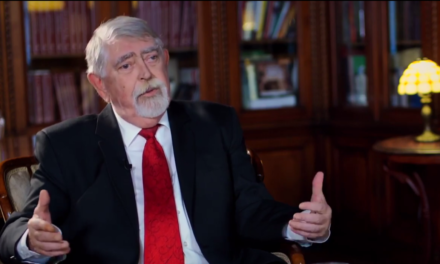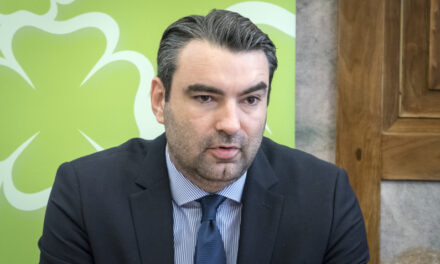According to Finance Minister Mihály Varga, it is too early to talk about Hungary joining the Eurozone.
On Saturday, at the Tranzit festival in Tihany, the head of the ministry added:
now the agenda is, after two crises, "how can we establish the equilibrium position of the economy as quickly as possible".
Fiscal policy must reduce the deficit and the debt, he stated.
He explained: there was a period of economic policy when we were able to fulfill all the conditions except for the exchange rate fixation,
the two most recent crises confirmed that if we had the euro now, the Hungarian economy would have to take much less risk.
He said that the introduction of the euro would also have several advantages from a political point of view. He pointed out that according to the Eurobarometer survey in January of this year, 72 percent of the Hungarian population sympathizes with the introduction of the euro, since everyone wants stability.
He mentioned the abandonment of an independent monetary policy as a disadvantage of the common currency and the fact that the ECB makes its decisions primarily based on the criteria of the core countries, the French, German, Dutch, and Italian criteria, and Hungary may end up on the periphery.

Balázs Molnár, moderator of the discussion (b), Minister of Finance Mihály Varga (k) and economist Gyula Pleschinger, member of the Monetary Council of the Hungarian National Bank (j) at the podium discussion on the consequences of abandoning the national currency at the Tranzit festival in Tihany on August 26, 2023.
MTI/Noémi Bruzák
Gyula Pleschinger , member of the Monetary Council of the Hungarian National Bank (MNB), another participant in the discussion, added:
we are now very far from joining the euro zone, because we cannot even meet the Maastricht criteria. According to the official estimate of the MNB, the accession may take place sometime in the decade of 2030
he noted.
He said that a compliance index is taken into account at the MNB, in which, in addition to the Maastricht and convergence criteria, macroeconomic factors - inflation, public debt - are also included. This index shows that we are not suitable for the introduction of the euro, he added.
In response to a question about the introduction of the euro in Croatia, the Minister of Finance drew attention to the fact that
tourism accounts for 20 percent of the output of the Croatian economy, the income of which comes in euros, so the introduction of the common currency was not risky.
Gyula Pleschinger said that the crisis of 2008 shook the confidence in the kuna, and the euro had already been unofficially introduced in the country. He also touched on the fact that the acceleration of the "euroization" process must be avoided in Hungary.
According to Mihály Varga
Slovakia is an excellent example of the fact that the introduction of the euro alone does not solve the problems.
In 2005, Slovakia overtook Hungary in terms of purchasing power parity. Our northern neighbor joined the euro zone in 2009, after 2013 the indicator began to decline. Hungary's purchasing power parity is 77 percent of the EU average, in the case of Slovakia, the indicator is 66-67 percent. The development of the Czech Republic without the euro is much higher, the level of the economy measured in terms of purchasing power parity is already above 90 percent, he explained.
"Those who see the euro as a panacea are wrong, the quality of the economic policy matters"
- noted the Minister of Finance.
He said that if there is room for maneuver in monetary policy, it is possible for a country to overcome economic policy disadvantages.
Hungarian economic policy must focus on its own problems, the euro is not needed to make a country more stable, but rather to stabilize it so that we can meaningfully deal with the issue of the euro, said Mihály Varga.
MTI
Cover photo: Minister of Finance Mihály Varga at the podium discussion on the consequences of giving up the national currency at the Tranzit festival in Tihany on August 26, 2023. MTI/Noémi Bruzák












